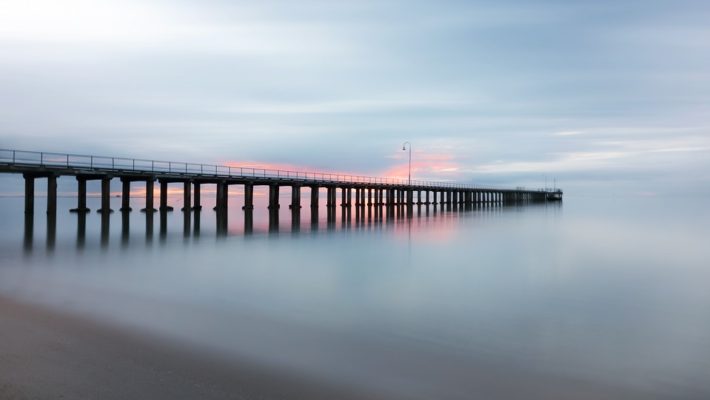“For ‘All flesh is like grass and all its glory like the flower of grass. The grass withers, and the flower falls, but the word of the Lord remains forever.’ And this word is the good news that was preached to you.” (1 Peter 1:24, ESV)
Grass and flowers eventually die. Even the most beautiful flowers eventually shrivel up and waste away. Our human potential is similar to these things. Human beings are amazing creatures. Some of us are capable of pretty fantastic accomplishments. However, our potential is limited. We can only go so far and accomplish so much, and if you take notice, those of us who strive and strive for the top never seem to be fully satisfied. The payoff may be great for a while, but it is always temporary.
Reaching our own potential cannot compare to God’s predestined plan for our lives.
God has a different plan for us than trying to live up to our human potential. His power is eternal, not limited like our own abilities. His plan’s beauty never fades. His ways are better than our ways. Trusting in my own ability to manage my life only allows me to reach my flesh’s potential. Trusting God opens me up to realize the destiny He has planned for me long before I was even conceived.
But how can we tap into this “destiny”, or God’s plan for our lives? As stated above, trusting God is the key. First we need to call attention to the cycle that we are in. It must be broken.
Submission to God’s plan begins with breaking our control cycle.
I want to be in control of my life. Sure, I know the right thing to say is that I submit to God’s plan. Sure, I know that limits me to accomplishing only my human potential. However, I often lean on my own understanding. To say otherwise would be a lie. I only need to look at the evidence that clearly proves I tend to have control issues. I am often frustrated when my meticulous schedule for the day is messed up somehow, and I catch myself getting angry when others do not act the way I want them to. We all need to be honest about our tendency to try to do things in our own power. If we cannot own this behavior, then we will remain stuck in that control cycle. Humility is the only way to break the cycle, which means being open and honest about ourselves with others and God. This often starts with being willing to be honest with ourselves.
By grace through faith (trust) we are saved, not just once but moment by moment, and able to do the things He has planned for us.
Unfortunately, we Christians tend to throw around words like “faith” and “trust” to the point that they lose their impact. Merely knowing these important theological words will not free us to live out the destiny God has for us. We must experience these intimately with our Father in Heaven.
Trusting God means trusting who He says He is and who He says I am. When we trust Him, we submit to His will in our lives and are able to experience what He has planned for us. To be able to submit to Him in any way, it is key to trust that His involvement in our lives is motivated by love. We will be prone to trust those that we believe love us, and His love is unconditional. Therefore, it is the most trustworthy of all love that we can ever experience.
Many life experiences whisper to us that He cannot be trusted. Our wounds and fears warn us to self-protect rather than trust Him to take care of us. I believe Jesus’ extravagant love demonstrated before and on the cross was necessary for us to be able to connect with and trust God…particularly after we have lived in this broken world that wounds us each and every day.
Experiencing God’s destiny for us is synonymous with living out of who God says I am.
We cannot take a step into our God-given destiny without knowing who He says we are and then trusting that truth to the point that we act on it. Believing the truth of who we really are in Christ allows us access to God’s power to make decisions based on conviction rather than fear, shame, or some warped human desire that gets us caught back up in the human potential/control cycle.
Rather than reading the Bible to find out what to do, we need to read the Bible while asking “Who are you God and who do you say that I am?”
God is not a fairy god mother we can persuade to do things our way, and the Bible is not a manual on how to reach our human potential. It is much more freeing and helpful to seek Scripture as a source of revealing who God really is and who He says we really are. As God shows us these precious realities, we have access to the truth we need to then trust in our daily lives. And as we walk in these truths, we walk according to the Spirit and into God’s destiny for us: to live out of who He says we are.
As we forego reaching our human potential, we begin to be able to pray the prayer that a hymnist wrote many years ago. “Have thine own way, Lord. Have thine own way.” His way is so much better than mine.


